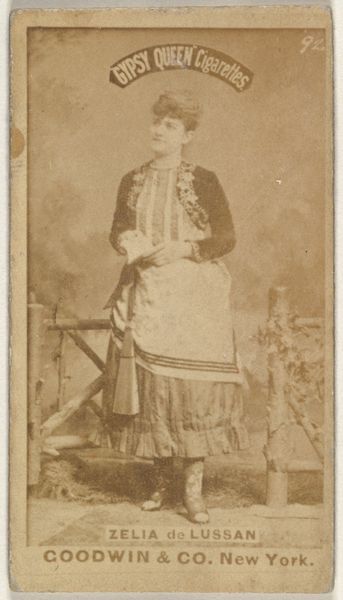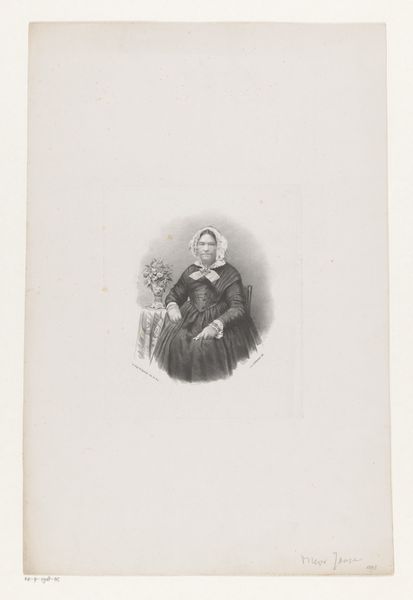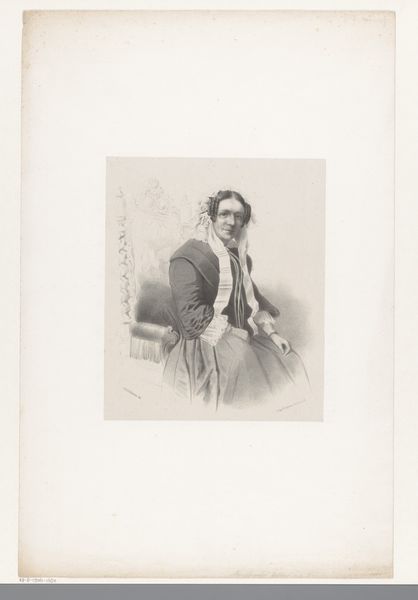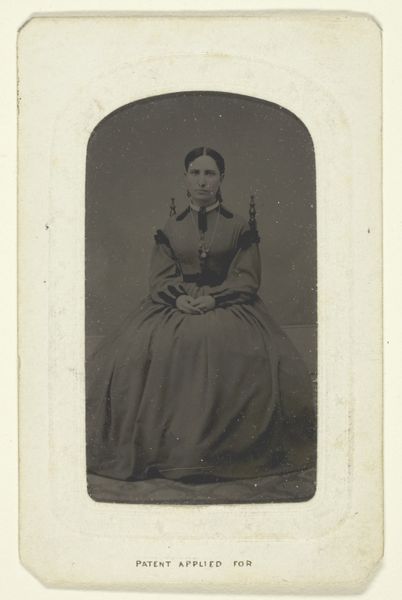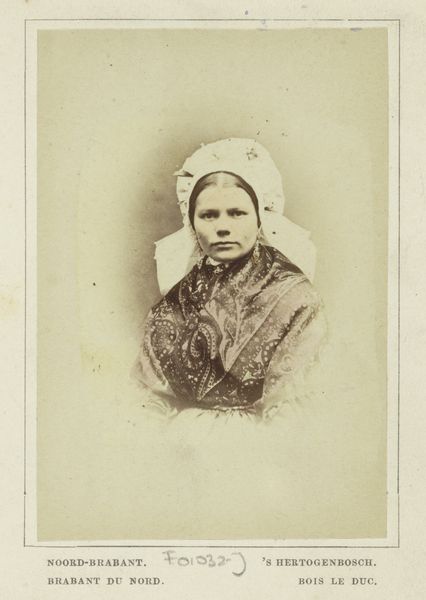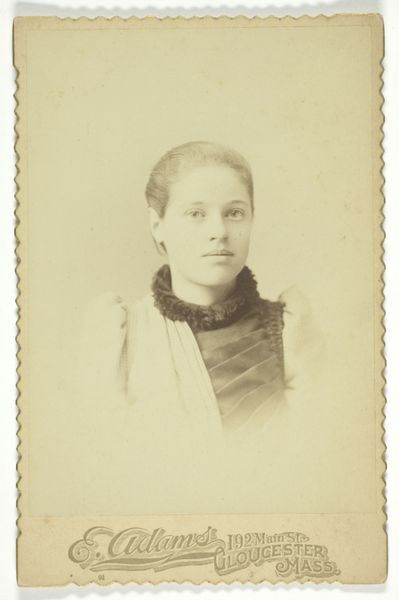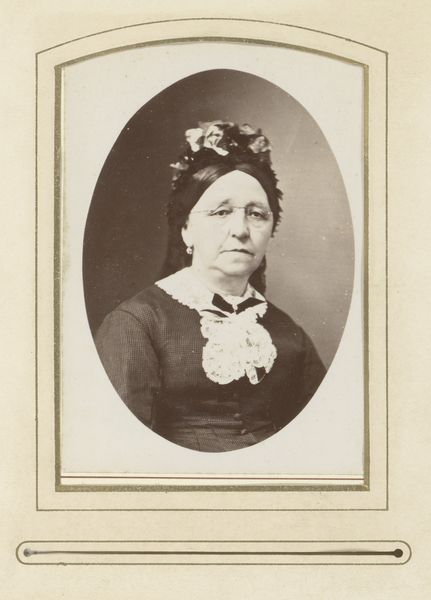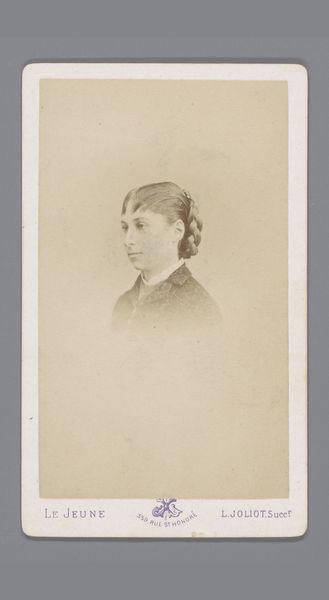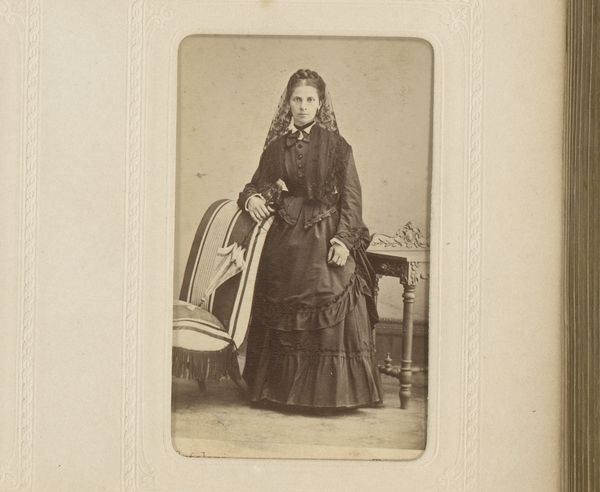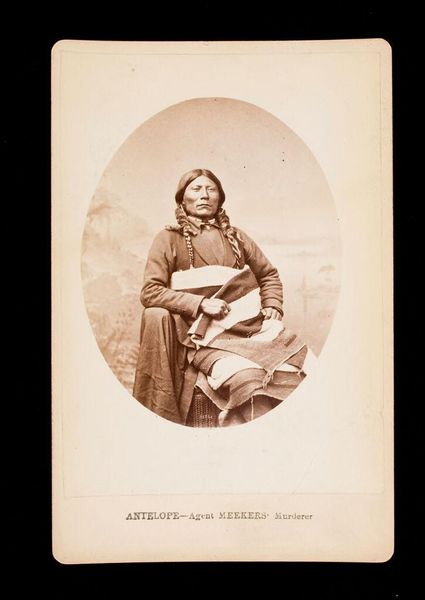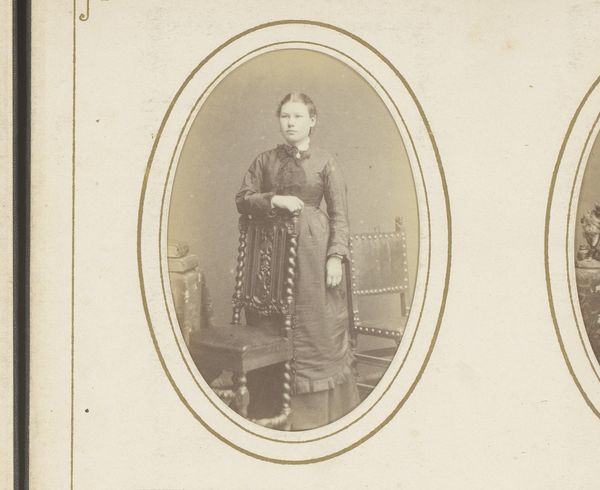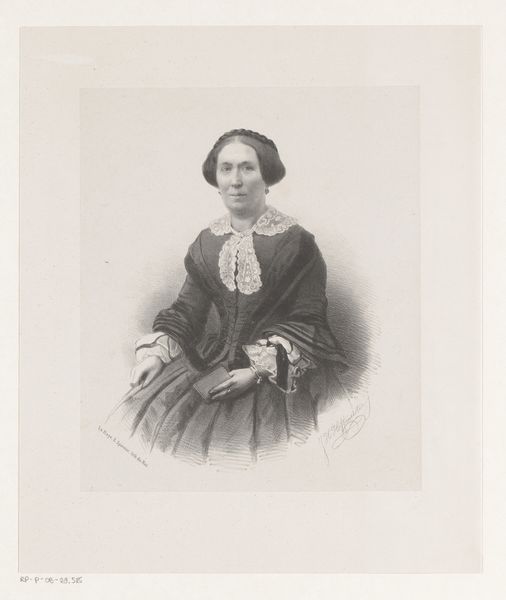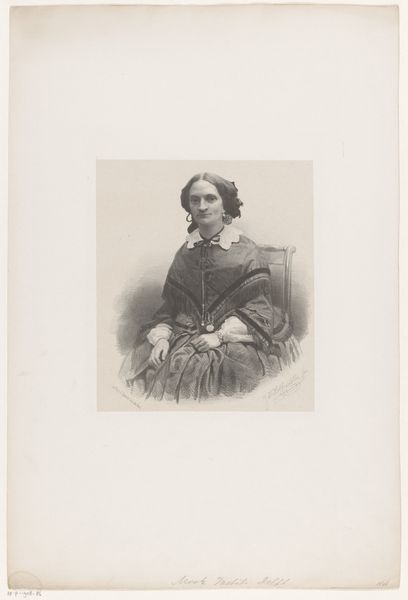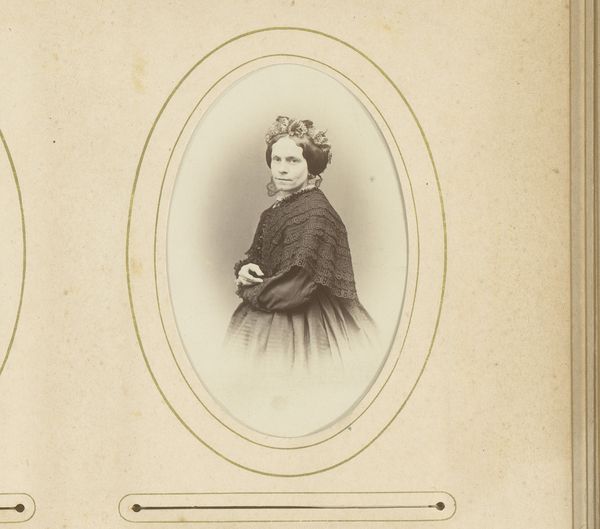
drawing, pencil
#
portrait
#
pencil drawn
#
drawing
#
light pencil work
#
pencil sketch
#
pencil drawing
#
pencil
#
pencil work
#
genre-painting
#
academic-art
#
realism
Dimensions: height 410 mm, width 285 mm
Copyright: Rijks Museum: Open Domain
Curator: Here we have a work by Johan Hendrik Hoffmeister, an understated yet evocative portrait of an unknown woman from the mid-19th century, circa 1851 to 1883. It's rendered meticulously in pencil. Editor: The delicacy of it is striking. There’s such a softness to the face, and yet, there’s something very contained, almost guarded in her expression. A kind of quiet stoicism. Curator: Indeed. Hoffmeister’s command of pencil as a medium allows him to capture a remarkable likeness, doesn't it? The fine hatching and shading around her eyes and mouth suggest a lived experience. And consider the materiality of that shawl she’s wearing. Editor: Absolutely. The textures are so crucial. Looking at the drawing more closely, it feels almost like a document of cloth production, a sort of celebration of weaving traditions expressed through the sharp diagonals and subtle irregularities of the checkered shawl. Curator: You know, when I look at her bonnet, I imagine a specific maker's hand in the detailed lace trim; that suggests a personal, crafted value separate from any industrialized outcome. Do you get a sense she chose that scarf intentionally? Maybe as a subtle statement? Editor: Definitely. The shawl's pattern contrasts with the starker bonet, suggesting individual agency even within the constraints of societal expectation, the portrait becomes a dialogue between personal adornment and class identity through accessible yet meticulously detailed textiles. But how many iterations of this kind of image had to be created for people of certain levels of status or occupations? Curator: I think Hoffmeister provides an individualized and nuanced representation of this sitter. Look at the way he suggests light playing across her face. It's not merely representation. He truly saw her, you know? The small upturn of her lip, is it a touch of defiance? Perhaps only we are seeing something of the artist in it as well. Editor: Yes, perhaps. It makes you ponder, though: what labor went into her clothing versus the paper and graphite Hoffmeister utilized. There’s a real contrast in the labor invested in these goods and its representation here. Curator: Considering her composed demeanor and modest dress, maybe she just wished to be seen, acknowledged as more than simply someone unknown. Editor: Yes, seeing her through pencil and paper lets us ponder her history differently, it disrupts the norms.
Comments
No comments
Be the first to comment and join the conversation on the ultimate creative platform.
